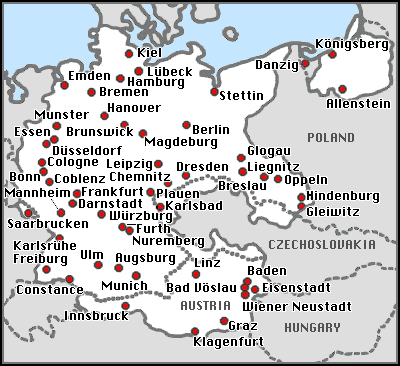City Comforts Blog has picked
up on Bill Osborne’s commentary
about “the delicate, almost imperceptible line that separates good and evil, life and death, guilt and
innocence.” Meanwhile, Osborne offers a reminder that Kristallnacht, the Night of Broken Glass,
November 9, 1938, was almost a year before the start of World War II — so that no one had any
illusions about the abuses going on in Germany — and yet nothing was done.
Attacks against Jews were not
limited to a notoriously anti-Semitic city such as Munich. On that night and the next all across the
country:
“ 96 Jews were killed and hundreds more injured, more than
96 Jews were killed and hundreds more injured, more than
1,000 synagogues were burned (and possibly as many as 2,000), [see map], almost 7,500 Jewish
businesses were destroyed, cemeteries and schools were vandalized, and 30,000 Jews were
arrested and sent to concentration camps.”
Within days, laws were passed to “Aryanize” the economy, and it wasn’t long before:
+ Jews were required to turn over all precious
metals to the government.
+ Pensions for Jews dismissed from
civil service jobs were arbitrarily reduced.
+ Jewish-owned bonds,
stocks, jewelry and art works can be willed only to the German
state.
+ Jews were physically segregated within German
towns.
+ A ban on the Jewish ownership of carrier
pigeons.
+ The suspension of Jewish drivers
licenses.
+ The confiscation of Jewish-owned
radios.
+ A curfew to keep Jews off the streets between 9:00 p.m.
and 5:00 a.m. in the summer and 8:00 p.m. and 6:00 a.m. in the
winter.
+ Laws protecting tenants were made non-applicable to
Jewish tenants.
As Osborne points out, the progroms such as Kristallnacht and these utterly extreme
laws were not imperceptible lines.
